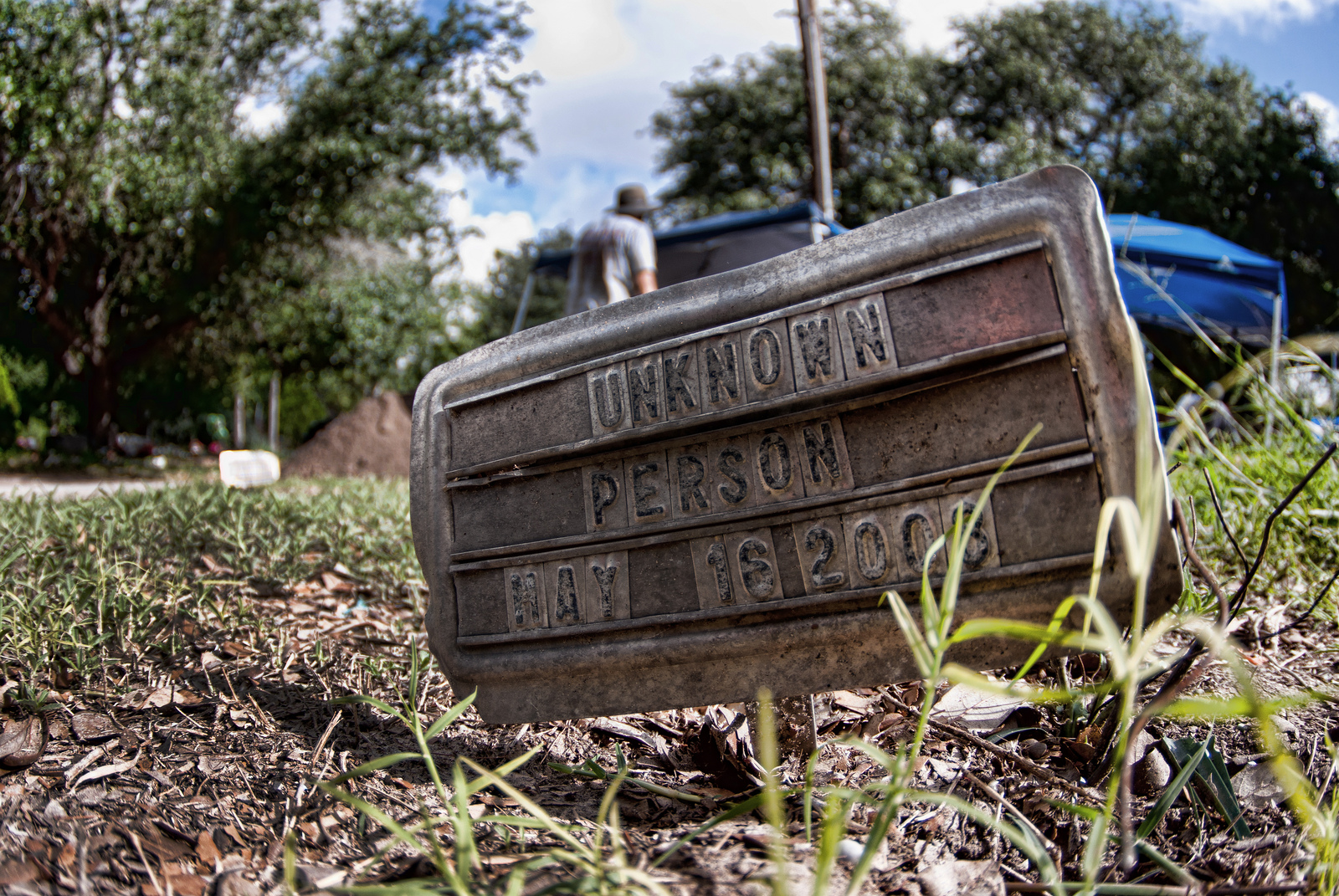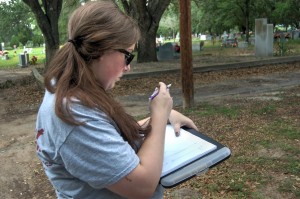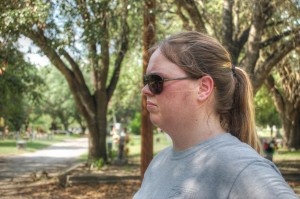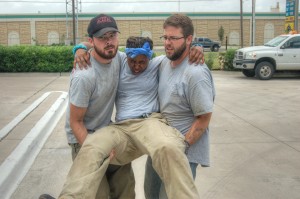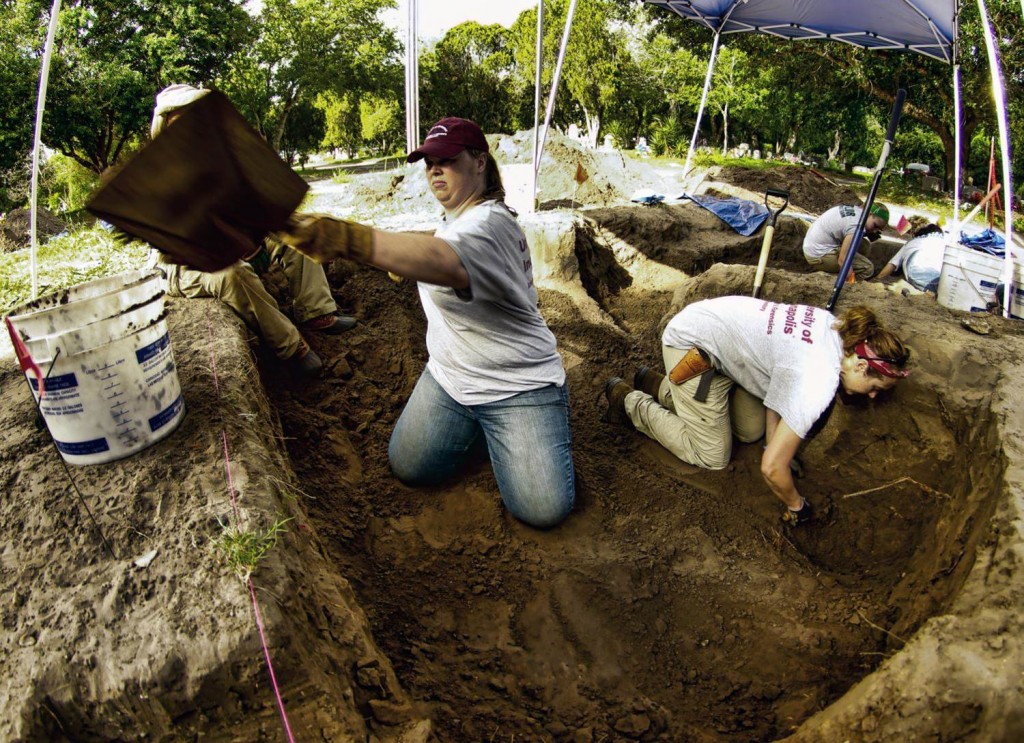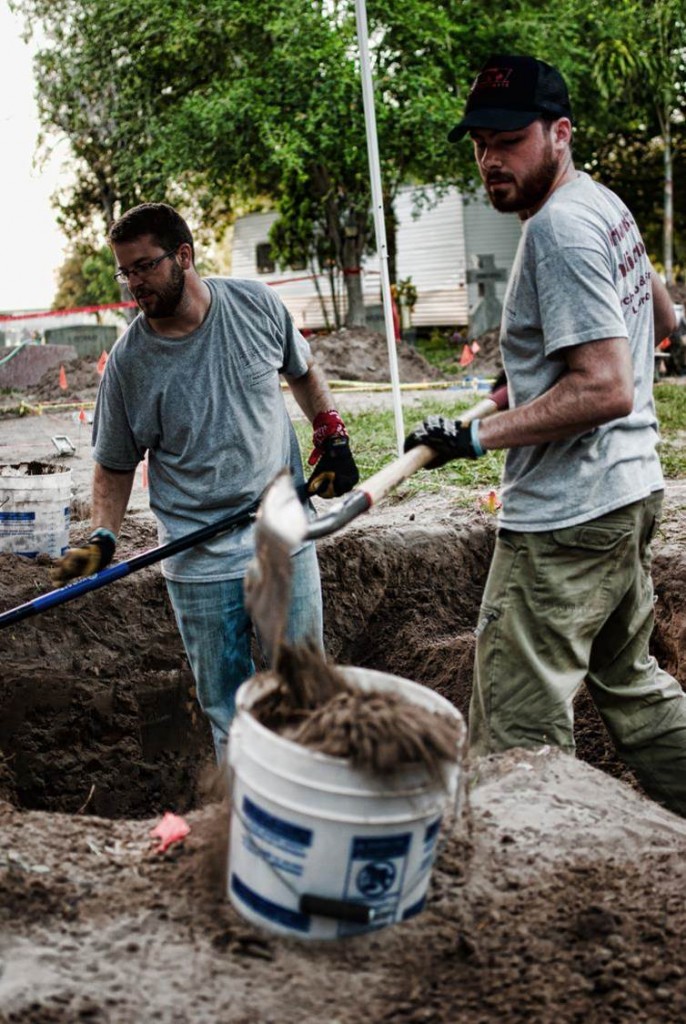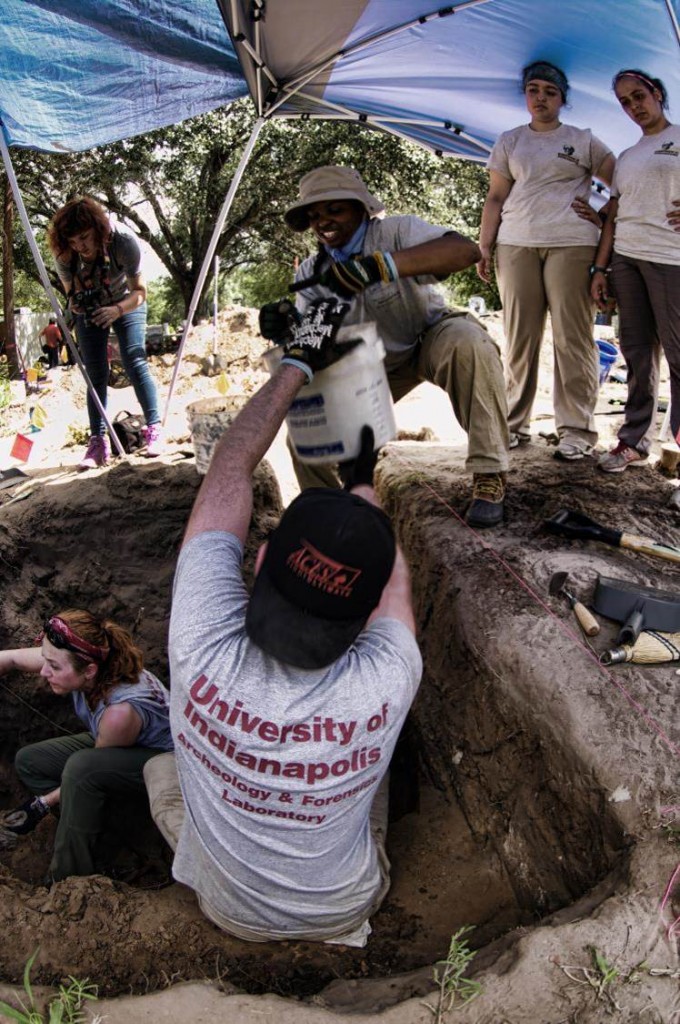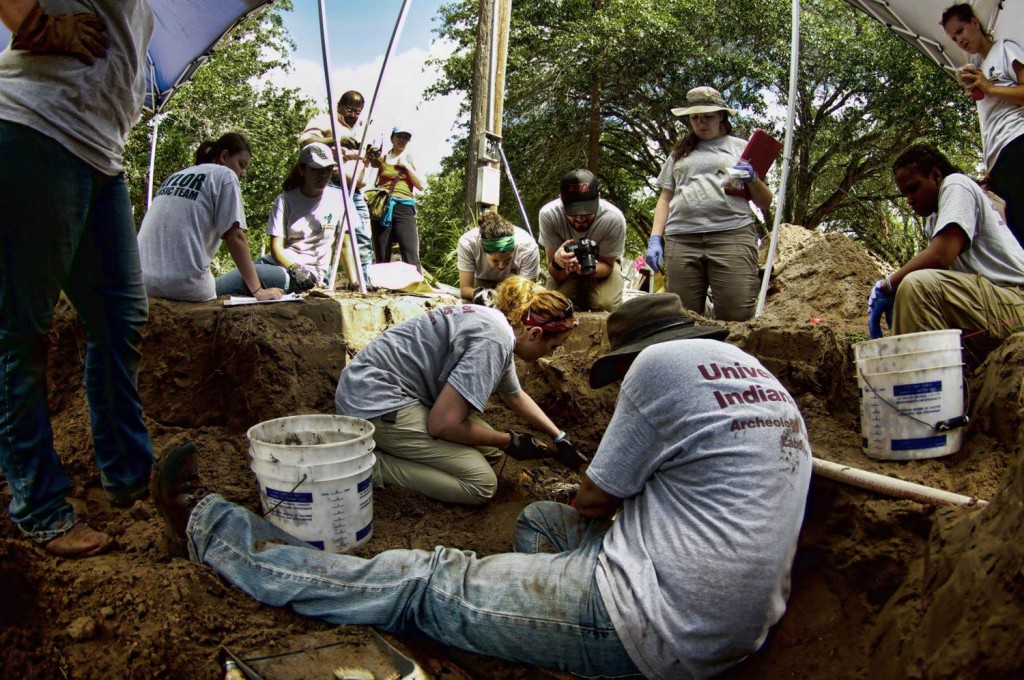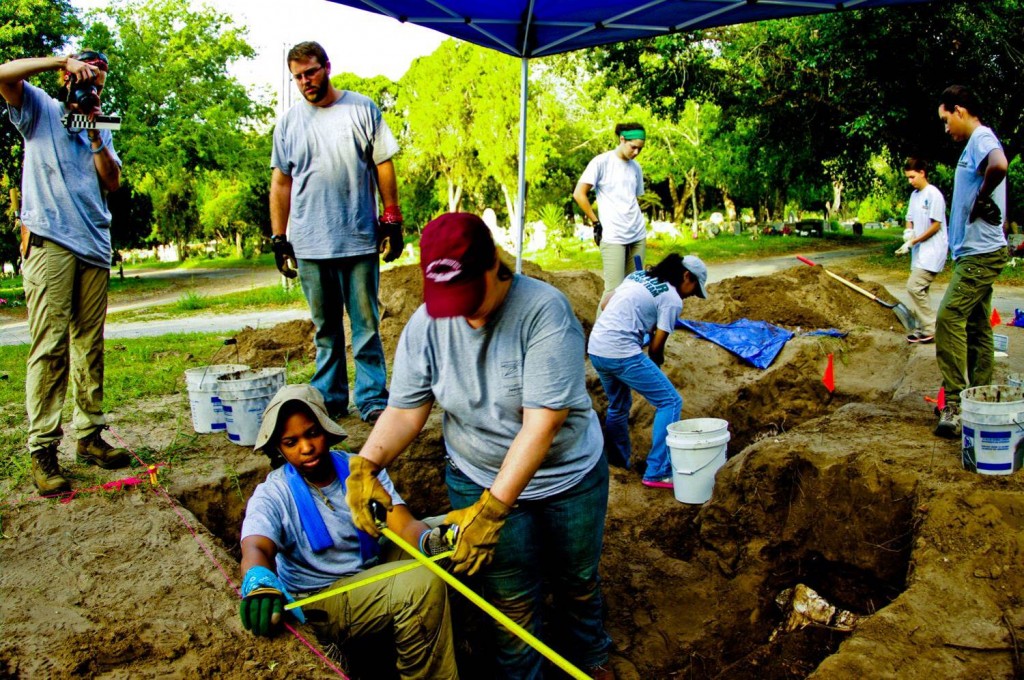In addition to packing, I am also spending the evening reading the “Protocol Development for the Standardization of Identification and Examination of UBC Bodies Along the U.S.-Mexico Border: A Best Practices Manual”. These suggested best practices were adopted by Texas last week and provide an outline for the recovery and identification of unidentified migrants. Part of our trip back to Falfurrias includes a training session on forensic archeology for local law enforcement, which is suggested in the manual. “All entities involved in the recovery of UBC remains should introduce basic training programs and instruction on different aspects of evidence collection, including recovery techniques.”
While the manual contains basic information on proper protocol, it is also laden with reminders of the seriousness of the situation. The fact that these counties are “faced with disaster-scale death numbers” that would stretch the resources of any county in the US. A reminder of the high death toll of this humanitarian crisis.
The manual also puts a face on the crisis by reminding us that a basic human right includes the expectation that every family should have the opportunity to participate in the decision making process for the disposition of the remains of their loved one. It reminds me that when people ask me “Why do you…”, “Why don’t you…”, or “Maybe you should…” that I should refer them to the internationally held principle that unidentified remains should be available for families to reclaim. That there are international requirements for the treatment of the dead. That the 1949 Geneva Convention suggests proper and respectful treatment of the dead including honorable interment and the avoidance of cremation unless imperative for reasons of hygiene. It reminds us that “For families of the missing, grief may be unresolved for long periods of time, when they do not know what has happened to their loved one. With this in mind, nothing should be done to make this process more difficult for a grieving family.” It’s a reminder that you cannot expect a certain level of respect for you and your family during a difficult process like this unless you extend the same basic level of respect for others.
We feel honored to be invited to Brooks County to conduct a training session. Our work to date has been uncovering the past as an effort to identify those buried without a name. This portion of our trip will contribute to the future of identification efforts. Part of the training will include understanding the difference between human and nonhuman bone. Wish us luck as we carry the bones used for this portion of training (none are human) in a suitcase through the airport! I have all the documentation needed to show them who we are and what we are doing. But it should still be interesting!
~KEL
